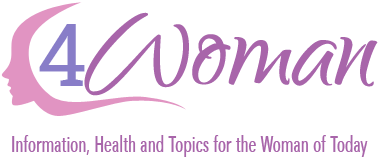Caring for Yourself or Others with HIV/AIDS
- Symptoms of HIV/AIDS
- Treatment Side Effects
- Opportunistic Infections (OIs)
- Nutrition
- Emotional Issues
- Additional Information on Caring for Yourself or Others with HIV/AIDS
If you have HIV/AIDS or you're caring for someone who does, there are a lot of different aspects of disease management to think about — below are just some issues to consider:
Symptoms of HIV/AIDS
Many people have no symptoms when they first get HIV — some even have no symptoms for years. However, some people with HIV get symptoms such as being very tired, quick weight loss, frequent low-grade fevers, swollen lymph nodes, and night sweats. Some health problems common in people with AIDS include coughing and shortness of breath, lack of coordination, and fever.
Treatment Side Effects
There is no cure for AIDS, but there are treatments that slow down the disease. This way, it will take more time for HIV to progress into AIDS. Despite the beneficial effects of treatment, there are side effects. Some include nausea, vomiting, diarrhea, weakness, dizziness, headache, and rash. Lipodystrophy is a very common side effect as well. Also called fat redistribution, lipodystrophy creates a problem in the way your body produces, uses, and stores fat. Project Inform offers more information about side effects.
Opportunistic Infections (OIs)
With a weakened immune system, people with HIV/AIDS can suffer from opportunistic infections (OIs). These are health problems that usually don't make a healthy person sick. You can learn more about OIs under "Living with HIV/AIDS."
Nutrition
Eating the right foods and preparing them safely is especially important for someone with HIV/AIDS. A healthy diet can help you stay strong, keep a healthy weight, help the treatment work better, keep your immune system strong, and help you get better faster after being sick. If you're having problems like a sore mouth, diarrhea, nausea, or vomiting — or maybe one of the drugs you're taking has affected your sense of taste or your appetite — eating right might be tough. Learn more about ways to have a healthy diet while living with HIV from the Food and Agriculture Organization of the U.N.
Emotional Issues
Women living with HIV/AIDS have to deal with many stressful decisions and challenges — and feelings that are hard to cope with. Some of these include dealing with the stigma of HIV; finding support; not feeling good about oneself; anger; grief and sadness; and depression. Caregivers of people living with HIV/AIDS also face a lot of stress and emotional problems. Caregiving involves a great commitment of time and energy, and can be an emotional roller coaster. It can be hard to focus on your own health and the needs of other family members.
How you feel emotionally is just as important as your physical health. To cope with these issues, it might help to talk to other people with HIV or other caregivers who can share information and ideas on how to deal with challenges. A support network can help you deal with the stresses of having HIV or caring with someone who does. Listed below are some ways to find support.
- Contact a local AIDS organization. A local AIDS organization can offer emotional support, direct you to support groups, and connect you to providers, services, medicines, and information.
- Call the CDC National AIDS Hotline at 800-CDC-INFO (232-4636). They can connect you with resources in your area.
- Find out if your health plan, including Medicaid, would pay for counseling.
- Talk to a case manager. A case manager can help you with things like paying for medicine, finding providers, directing you to housing and transportation programs, and getting childcare. You can find a case manager through your health insurance organization or at an AIDS clinic or hospital.
You may face these and many other issues with HIV/AIDS. But there is information to help you learn what you can do. The resources below will help you take the steps to prepare for these challenges and cope with them if they happen.

